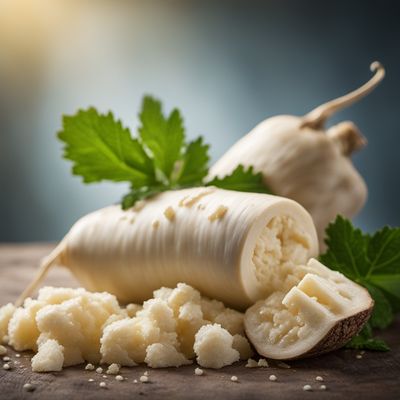
Ingredient
Tonic flavour
"The Zest of Tonic: Unleashing the Vibrant Flavors of a Culinary Essential"
Tonic flavor is characterized by its vibrant and tangy taste, reminiscent of citrus fruits. It possesses a refreshing quality that enlivens the palate, making it a popular choice in both sweet and savory dishes. The flavor is often described as a harmonious blend of tartness and sweetness, with subtle bitter undertones. Its bright and lively taste adds depth and complexity to a wide range of culinary creations. The texture of tonic flavor is typically liquid or powdered, allowing for easy incorporation into recipes. Its appearance varies depending on the form, ranging from clear liquids to fine powders.
Origins and history
The origins of tonic flavor can be traced back to the discovery of quinine, a bitter compound derived from the bark of the cinchona tree. Quinine was initially used as a treatment for malaria, but its unique flavor soon caught the attention of chefs and mixologists. Tonic water, which contains quinine, became popular as a mixer for cocktails, particularly the classic Gin and Tonic. Over time, the distinct taste of tonic flavor gained recognition and found its way into various culinary applications, expanding its cultural significance.
Nutritional information
Tonic flavor is low in calories and does not contribute significant amounts of nutrients. Its primary purpose is to enhance the flavor of dishes rather than provide nutritional value.
Allergens
Tonic flavor does not typically contain any known allergens, but it is always advisable to check the specific product label for any potential allergen warnings.
How to select
When selecting tonic flavor, opt for reputable brands that use high-quality ingredients. Look for products that have a well-balanced flavor profile and do not contain any artificial additives or excessive sweeteners. Additionally, consider the intended use of the tonic flavor, as some brands may offer variations specifically designed for cocktails or culinary applications.
Storage recommendations
To maintain the freshness and quality of tonic flavor, store it in a cool, dry place away from direct sunlight. Sealed bottles or containers should be tightly closed after each use to prevent exposure to air and moisture. Proper storage will help preserve the flavor and extend the shelf life of the product.
How to produce
Tonic flavor is typically produced by extracting the essential oils and flavors from various botanicals, such as citrus fruits, herbs, and spices. The process involves maceration, distillation, or infusion to capture the desired flavors. However, producing tonic flavor at home can be challenging due to the complexity of the extraction process. It is recommended to purchase commercially available tonic flavor for consistent and reliable results.
Preparation tips
Tonic flavor can be used in a variety of ways. It is commonly used as a mixer for cocktails, adding a refreshing twist to classics like the Gin and Tonic. In culinary applications, it can be used to enhance the flavor of sauces, dressings, marinades, and desserts. When using tonic flavor, start with small amounts and gradually adjust to achieve the desired taste. It is a versatile ingredient that pairs well with a wide range of flavors, particularly citrus, herbs, and spices.
Culinary uses
Tonic flavor is widely used in mixology to create refreshing and vibrant cocktails. It is also a popular ingredient in sauces, dressings, and marinades, adding a tangy and zesty kick to savory dishes. In desserts, it can be used to brighten up the flavor of sorbets, ice creams, and fruit-based desserts.
Availability
Tonic flavor is commonly available in grocery stores, supermarkets, and specialty stores worldwide.
More ingredients from this category » Browse all

Peppermint flavour
The Refreshing Essence: Peppermint Flavour

Cucumber flavour
"Cool and Refreshing: Exploring the Delicate Essence of Cucumber Flavor"

Mushroom flavour
The Umami Elixir

Ham flavour
Unlocking the Essence of Smoky Delight

Pork flavour
Savory Sensation: Unleashing the Essence of Pork

Peach flavour
The Essence of Summer

Sweet chili flavour
Fiery Fusion

Amarena cherry flavour
The Sweet and Tangy Essence of Amarena Cherries

Lemon flavour
The Zesty Essence

Cola flavour
The Essence of Fizzy Delight

Tea black flavour
The Dark Elixir: Unveiling the Richness of Black Tea

Horseradish flavour
The Fiery Zest